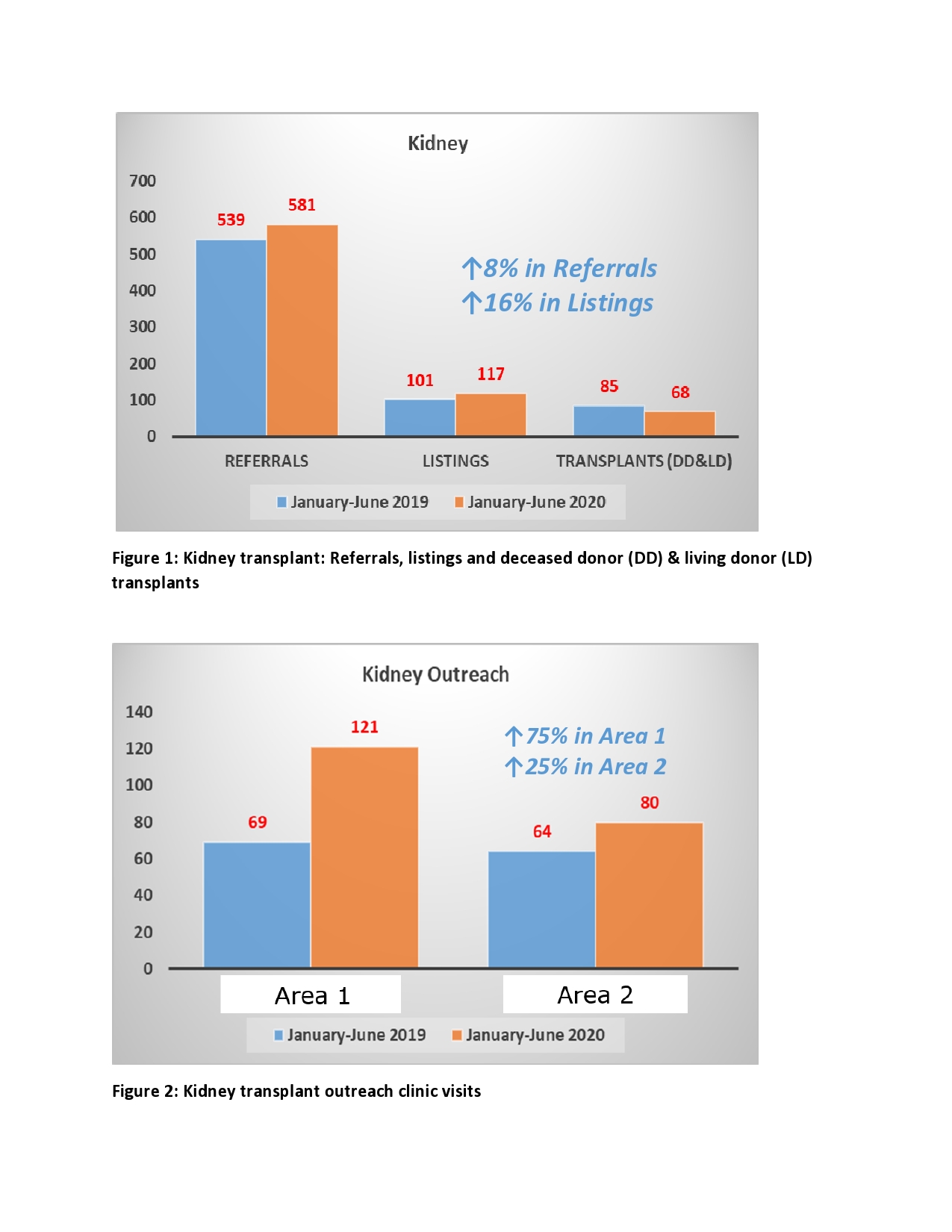Initial Kidney Transplant Evaluations with Telehealth: Is it a Pandemic Only Practice?
1Univ of Cincinnati, Cincinnati, OH, 2UC Health, Cincinnati, OH
Meeting: 2021 American Transplant Congress
Abstract number: 281
Keywords: Kidney transplantation, Kidney/pancreas transplantation
Topic: Clinical Science » Organ Inclusive » Non-Organ Specific: Disparities to Outcome and Access to Healthcare
Session Information
Session Name: Disparities in Access and Outcomes in Kidney Transplantation
Session Type: Rapid Fire Oral Abstract
Date: Monday, June 7, 2021
Session Time: 6:00pm-7:00pm
 Presentation Time: 6:00pm-6:05pm
Presentation Time: 6:00pm-6:05pm
Location: Virtual
*Purpose: COVID -19 pandemic presented an unprecedented challenge to health care systems. It disrupted the transplant processes including evaluations, especially in rural or other geographically challenged areas in terms of access to transplant care (outreach locations). Prompt utilization of telehealth may change how healthcare is delivered beyond pandemic.
*Methods: By April 2020, the healthcare disruption by the pandemic was evident; COVID-19 lockdowns were in full swing with a nationwide shortage of personal protective equipment, most staff working remotely, no in-person clinics, and all evaluation testing/elective surgeries on hold. We promptly converted all our transplant outreach clinics to telehealth based in April. The goal was to continue to connect, communicate, consent, educate, and evaluate our transplant referrals.
*Results: The telehealth platform provided safe care for the patients and providers (minimal physical exposure) with the least intrusive means of evaluation. Patients and their families were more open to communicating. It lessened the patient’s initial commitment burden towards a visit to the center and helped with their time off from work, transportation, opportunity costs, and provided easy access to health care from their home with almost zero no-show rate. We were able to filter an increasing number of referrals to identify the need for support plans/transportation/weight issues/living donor education at a much earlier stage and continued to move patients through the transplant evaluation process. The challenges noted were: 1) Patient barriers which included access to technology adeptness, system issues, ability to seek technical support, or asking for help. 2) Healthcare system & Provider barriers included a steep learning curve, lack of physical exam/assessment, time-consuming process, missing “personal rapport”, lack of state licensure reciprocity across state lines, lower reimbursements/ work credits, and high technology costs. Figures 1 and 2 show trends in referrals, listings, and transplants in 2019 and 2020; despite the challenges in the pandemic, telehealth was able to achieve an increase in all activities in outreach locations.
*Conclusions: Pandemic and beyond, telehealth could be a viable standard option for increasing transplant referrals, screening, and initial evaluation. It adds value to transplant outreach clinics and increases patients’ access to transplant centers. Licensure reciprocity, improvement in reimbursements, and utilizing more patient-centric platforms are needed to make such models sustainable.
To cite this abstract in AMA style:
Govil A, Tims E, Siemer C, Harris J, King C, Shah S, Thakar C. Initial Kidney Transplant Evaluations with Telehealth: Is it a Pandemic Only Practice? [abstract]. Am J Transplant. 2021; 21 (suppl 3). https://atcmeetingabstracts.com/abstract/initial-kidney-transplant-evaluations-with-telehealth-is-it-a-pandemic-only-practice/. Accessed February 20, 2026.« Back to 2021 American Transplant Congress

